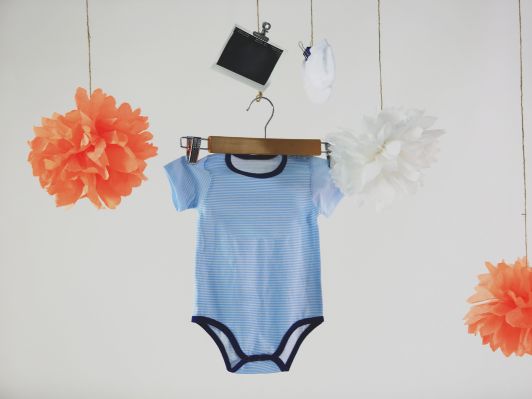There is nothing more exciting and challenging than being a new parent. Along with its endless joys, it can also bring financial stress. One that can burden your budget.
For many new parents, the cost of raising a child can be overwhelming. Especially when you factor in all the baby care products. It might be hard initially. But spending money on your babies needs doesn’t have to break the bank and can be budget conscious.
Table of Contents
What do new parents spend money on when the baby arrives?

As a new parent, childcare tends to be one of the biggest expenses. In countries like Norway or Sweden, the government subsidises childcare. Whereas in others, such as the UK and Ireland, you may need to pay out of pocket for expensive childcare services.
It is also necessary to make a significant investment upfront for baby products. Such as strollers, car seats, and cribs. Clothing for your baby, including onesies, sleepwear, and outerwear, can also add up quickly.
Essential items like nappies and formula are also necessary purchases. These can become costly over time. You may opt for organic or hypoallergenic options, which can be even more expensive. To save money each month, consider looking for deals, discounts, and second-hand options. You can also consider using cloth diapers or making your baby food.
What are the best money-saving tips for new parents?
Strategic planning and agreed financial decisions are a good place to start. Here are some ways to maintain cash flow and give your baby the care they deserve:
1. Hire baby clothes and items

One of the first things you often do is rush out and buy all the items for new babies you think they need. However, this can quickly add up and put a strain on your budget. Instead of buying everything new consider hand me downs such as baby equipment, strollers, and car seats.
Many places in the UK offer baby item hire services. This can be a cost-effective way to access these baby items without breaking the bank.
2. Save on nappies

Disposable nappies can be a significant expense for you. People spend an average of £1,000 per year on disposable nappies for toddlers till they reach two-and-a-half years.
Switching to cloth nappies with a baby care bag can be a more eco-friendly and a cheaper alternative. While the initial investment may be higher, in the long run, cloth reusable nappies can save you a lot of money. This is especially true if you plan to have many children.
3. Research To Avoid Overspending
As a new parent, you can save some money fast on a low income by doing proper research before your baby arrives. It is important to prioritise your spending on the essentials. Such as diapers, formula, and a safe place for your baby to sleep.
By researching and comparing prices, you can also cut back on baby gear and clothing. Look for second-hand items. Borrow from family members. Take advantage of free resources, such as parenting classes.
4. Home-Based Business
According to online surveys by UNICEF, 38% of parents reported struggling to cover childcare costs. If you are a new parent looking to earn some extra money, starting a home-based business can be a great option. Creating an online store, selling handmade crafts, or offering freelance services has never been easier.
This can be a great fun flexible way to generate additional income while taking care of your baby at home. Plus, a family’s income from starting a home-based business may also come with tax benefits, which can further help you cut costs.
5. Claim Healthy Start Vouchers
For pregnant women and young children, the UK government offers Healthy Start vouchers to help with food and vitamin costs. You can use these vouchers to purchase fresh fruits and vegetables, cow’s milk, and infant formula.
If you are eligible, you could receive up to £4.25 per week for each child under the age of one. Claiming these vouchers can help you save on your grocery bill and ensure that you and your child have access to healthy food.
6. Save Money And Set a Budget
Creating a budget is a crucial step for any new baby parent. It can help you track your spending, identify areas where you can cut costs, and save some money. Write down a list of all your income sources and expenses, including rent, mortgage, hiring a baby sitter when going out on a date night, food expenses, etc.
As a new parent, setting a baby budget can help you prioritize your spending and avoid unnecessary expenses. It is important to keep in mind the costs of essentials such as diapers, formula, and baby wipes when creating your budget. However, if you find yourself going over budget, there are options available to help cover the costs.
Consider taking out a payday loan from your bank account or a reputed direct lender. This can provide you with the extra funds you need to cover unexpected expenses or household bills. However, you can even consider taking emergency loans, or same day loans, although the interest rate on these loans might be higher than traditional loans.
7. Government Benefits
Family benefits in the UK include tax credits, childcare vouchers, and child benefits. It’s important to research and understand the benefits you may be eligible for and make sure you are claiming them.
Especially during the early years of parenting when expenses are high, these totally free benefits can help you save. Here are a few examples:
- Child Benefit: This tax-free benefit is paid to the parent or guardian of children under 16.
- Sure Start Maternity Grant: This is a one-off payment of £500 to help with the cost of having a baby. It is available to parents who are on a low income or receiving certain benefits.
In the UK, the National Health Service (NHS) provides free healthcare services and health insurance plans to every child. There are also high-cost treatments for disabled and special needs children, as well as prenatal and postnatal care. NHS ensures every child has access to quality healthcare, regardless of their financial situation.
Additionally, if you have a private health insurance plan, please do check your terms to see what you are eligible for.
8. Part-time Jobs
Taking on a part-time job is an excellent way for many parents to earn extra income. There are many opportunities available for those who want to work part-time. Finding the right job can make a significant difference in a family’s financial situation.
One option is to work from home. Remote work allows parents to work, earn extra cash, and take care of their children. Another option is to find a job with flexible hours.
Part-time jobs, such as retail or customer service positions, often have varying schedules that can be adjusted to fit a parent’s needs.
9. Look For Deals Before the Baby Arrives
Expecting parents can start finding deals and discounts to save some money on baby stuff, freebies and essentials. For new parents, many retailers offer special promotions and discounts, so keep an eye out for baby freebies, toys, and deals in the baby box.
One way to find deals on baby clothes or free gifts for older kids is to sign up for email newsletters from your favourite retailer or a store which has a baby club section. Retailers will offer discounts on baby products and essentials to their email subscribers.
Another way to find deals is to follow retailers on social media platforms such as Facebook, Twitter, and Instagram. Keeping up with the latest promotions on products like toddler beds, baby toys and baby bottles is easy with social media.
Explore your options
In conclusion, as a new parent, managing finances can be both exciting and challenging. Having more money saving tips can help you provide your child with the best possible care without breaking the bank.
Remember, small changes in your lifestyle can have a significant impact on your monthly budget. By being mindful of your spending habits and making small adjustments, you can cut back on expenses. This way, you can still provide a happy and healthy environment for your child to grow up in.
With careful planning and smart money management, you can enjoy the wonderful experience of being a new parent. You won’t have to worry about finances.
Disclaimer: The information and external links given above are provided for reference only. This is not financial advice. We are not affiliated to any of the external links provided above.

